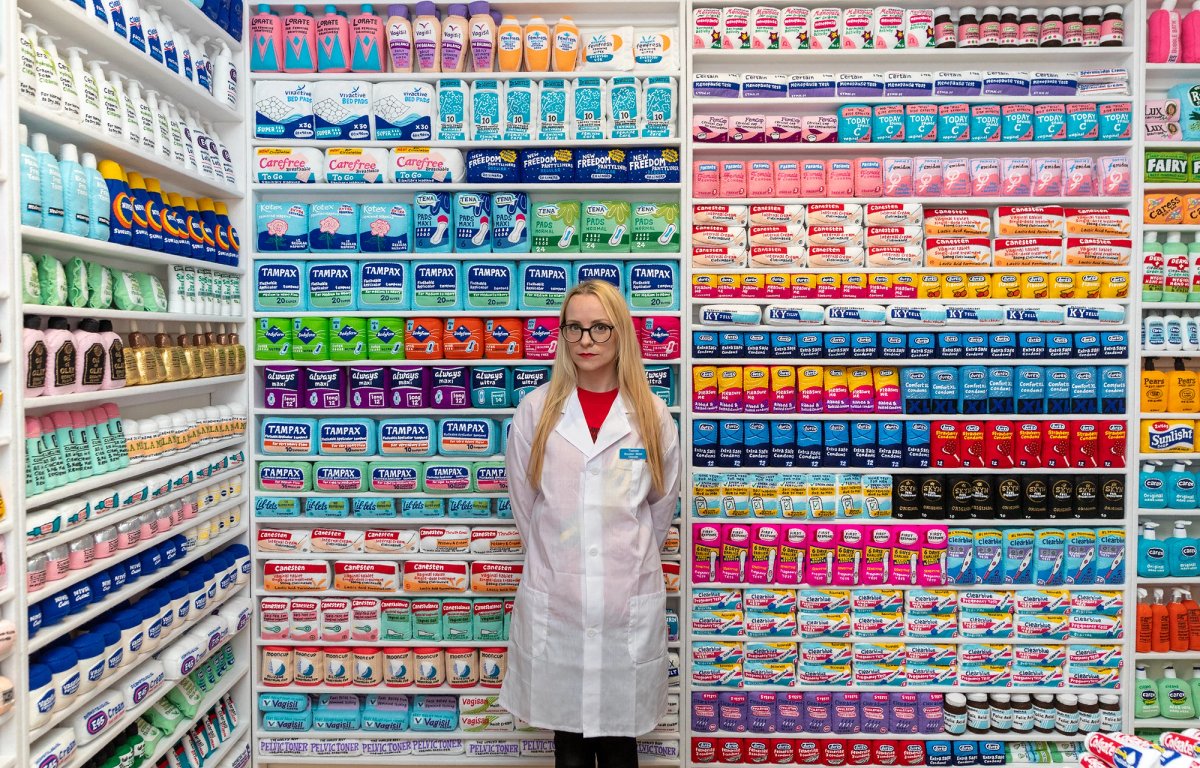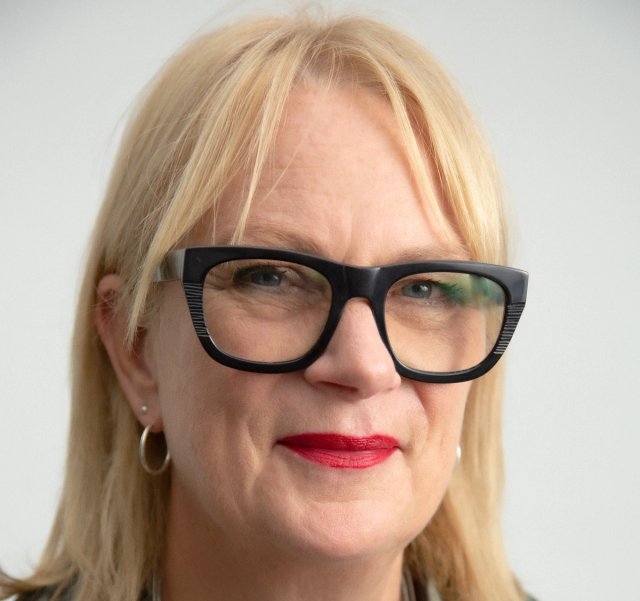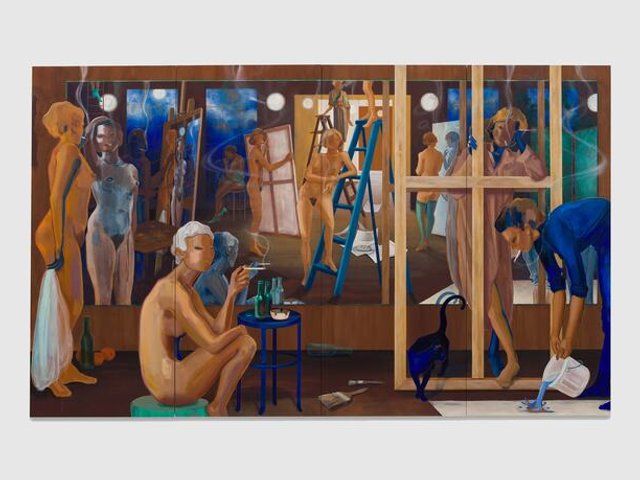As England's shops re-open for business it is a timely moment for Lucy Sparrow to present one of her installation-performances that recreates entire shops in the medium of felt, that dense textile so beloved of crafters, children and, more sombrely, Joseph Beuys.
In the past, Sparrow has given a Soho sex shop, a New York bodega and an East London corner shop the felt treatment. Now she’s taken over the Lyndsey Ingram Gallery in Mayfair and transformed it into a fully stocked pharmacy, with all its branded products rendered in felt. “I like that it's a childlike material. I like that it's cheap and cheerful, it’s not bronze,” says Sparrow of her trademark medium. “There’s a lot of snobbery that detracts from the serious art making that goes into this.”
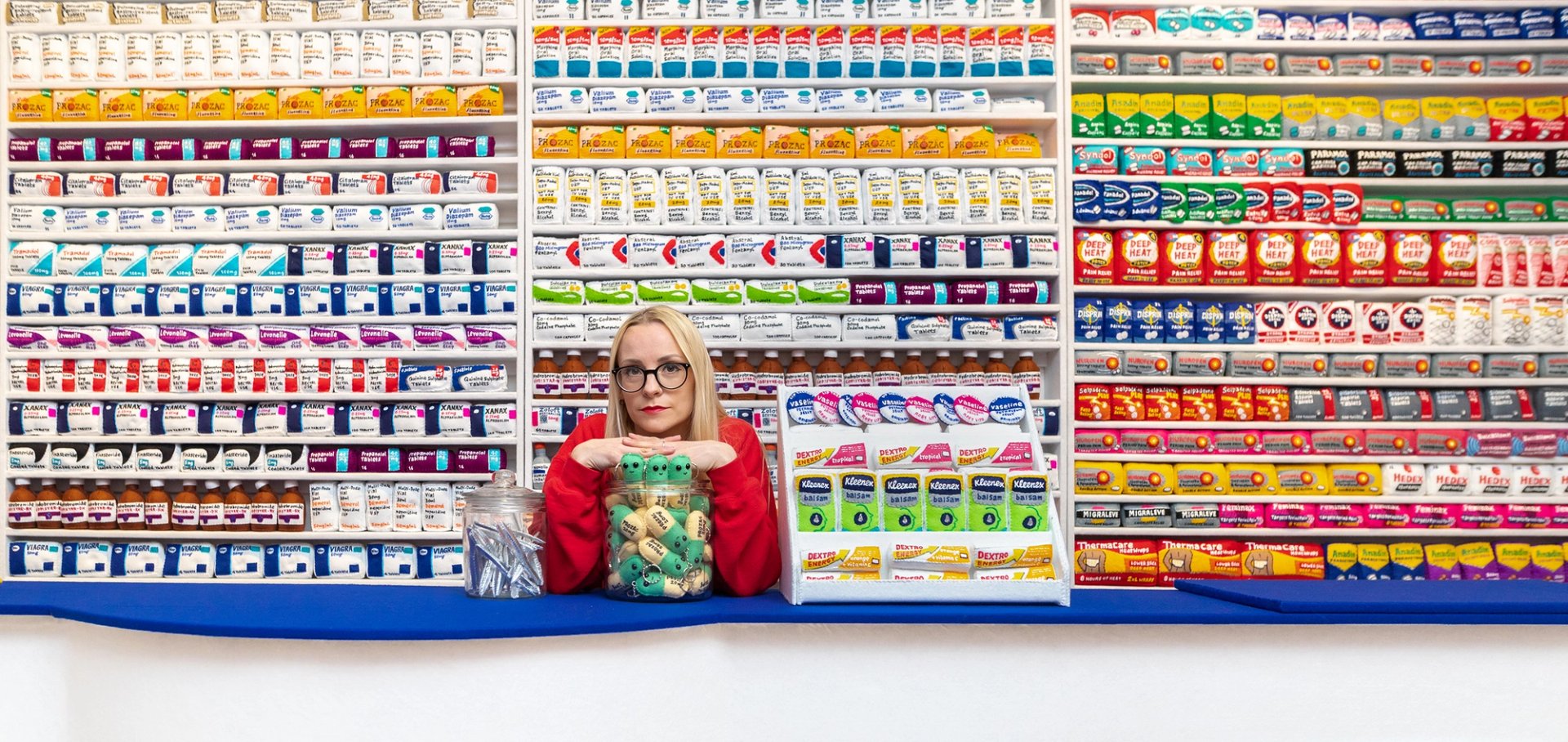
The chemist shop has “a whole level of intimacy not apparent in any high street shop,” says Sparrow © Photo: Lucy Emms. Courtesy of Lindsey Ingram Gallery and the artist
Bourden Street Chemist is such a convincing replica that locals have been popping in and trying to buy toiletries and medication. Lining its floor-to-ceiling felt-covered shelves and organised in labelled sections are soft fabric versions of all the familiar brand products that you’d expect from a pharmacy, from painkillers to cold remedies, toothbrushes to cotton wool buds. There are branded perfumes, a Rimmel makeup counter as well as Colgate toothpaste and Dove soap bars, as well as an extensive range of female sanitary products and Durex condoms. Behind the counter are stacked a wide range of prescription drugs including Tramadol, Prozac and Viagra, dispensed personally by the white-coated artist.
All the stock has been handmade over the past two years by Sparrow and a team of helpers. But while others might sew the merchandise, the artist oversees every detail and every label of the 15,000 or so items has been personally painted by the artist. “It’s an absolute labour of love to get it all right,” says Sparrow, who chooses all the products not only for their accuracy but for the visual impact of their packaging. “Some products don’t translate well into felt—if it hasn’t got a strong image that I like, it gets left out,” she says.
Although she professes herself to be “more than a little obsessed with products, packaging and the order represented by the retail environment”, for Sparrow the chemist shop is “a very unique and different place” with “a whole level of intimacy not apparent in any high street shop”. The artist herself is in-situ every day of the show’s three week run, wearing a white coat and presiding over and serving in the shop, offering medical advice and dispensing NFS (National Felt Service) prescriptions as receipts.
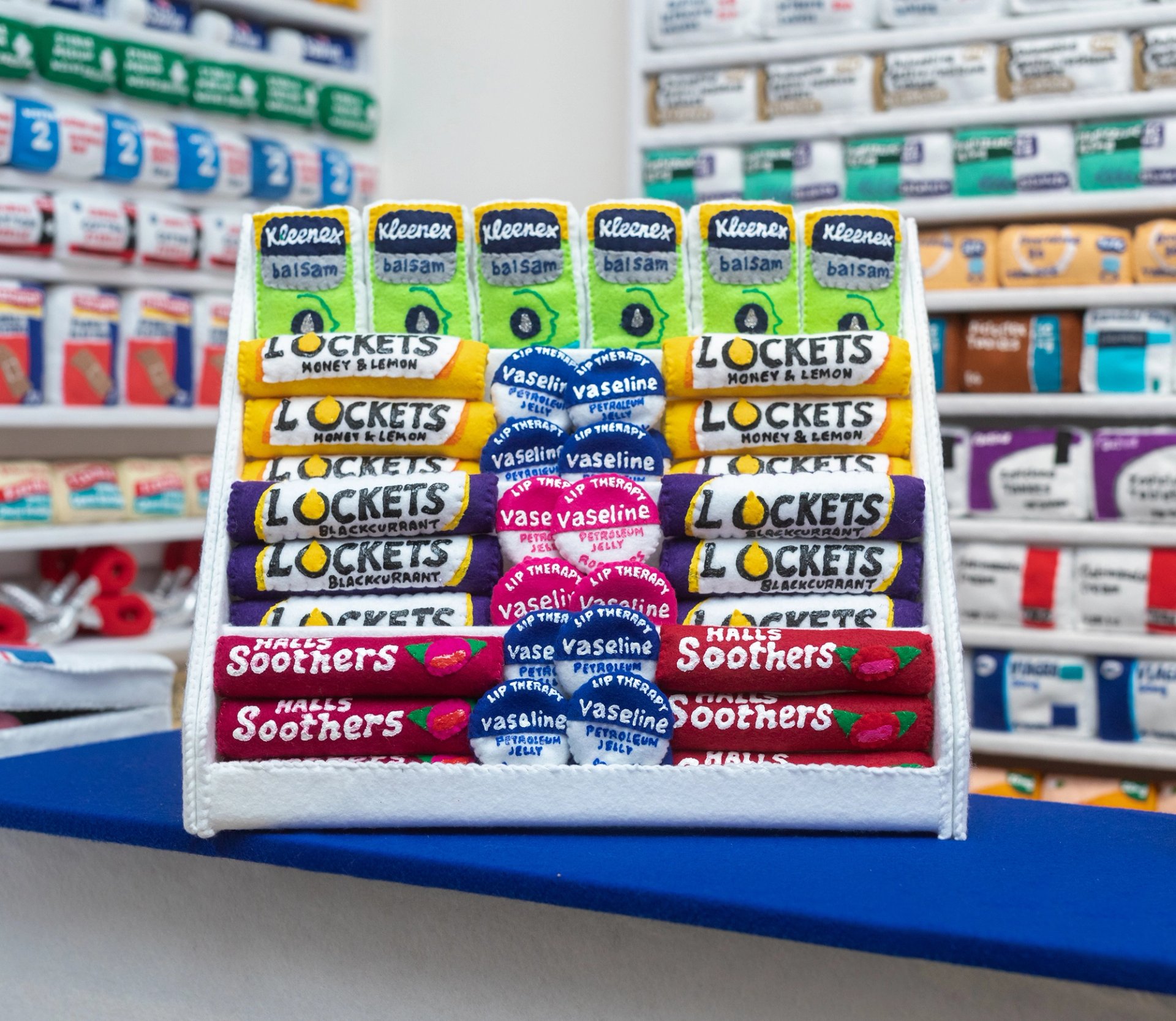
No detail has been spared the felt treatment © Photo: Lucy Emms. Courtesy of Lindsey Ingram Gallery and the artist
What could seem like a gimmick is dispelled by the sheer epic impact of the abundance of painstakingly recreated products and Sparrow’s forensic eye for detail. She’s also acutely aware of its art historical precedents, from Claes Oldenburg’s shop to Warhol’s product overload and Hirst’s foray into the artist-chemist shop. Then there’s the special status of the chemist’s shop and the way in which, as she puts it “you have an unbelievably important and trusting relationship with your pharmacist, more than you would do even if you were starting out with a therapist”.
At no time has this role been crucial than over the past year when among the most major and unsung heroes of the pandemic have been the pharmacists, open for business and offering face-to-face health advice when Doctor’s surgeries closed and medical consultancies went on line. Although Bourdon Street Chemist was conceived pre- pandemic, after some serious consideration Sparrow decided to go ahead with the project, believing that it now has extra relevance as a tender tribute to the fragility of our bodies, the importance of care and human interaction and the social as well as the fiscal role of the small shop. “It's very, emotional. It's very nostalgic. It's very important that it's about embracing care, and appreciating the importance of addressing mental as well as physical health” she says. “ If it means presenting a chemist in felt to make people realise how important these things are, then that's a service I'm very happy to provide.”
• Bourdon Street Chemist, Lyndsey Ingram Gallery, until 8 May.
Booking appointments: www.lyndseyingram.com.


